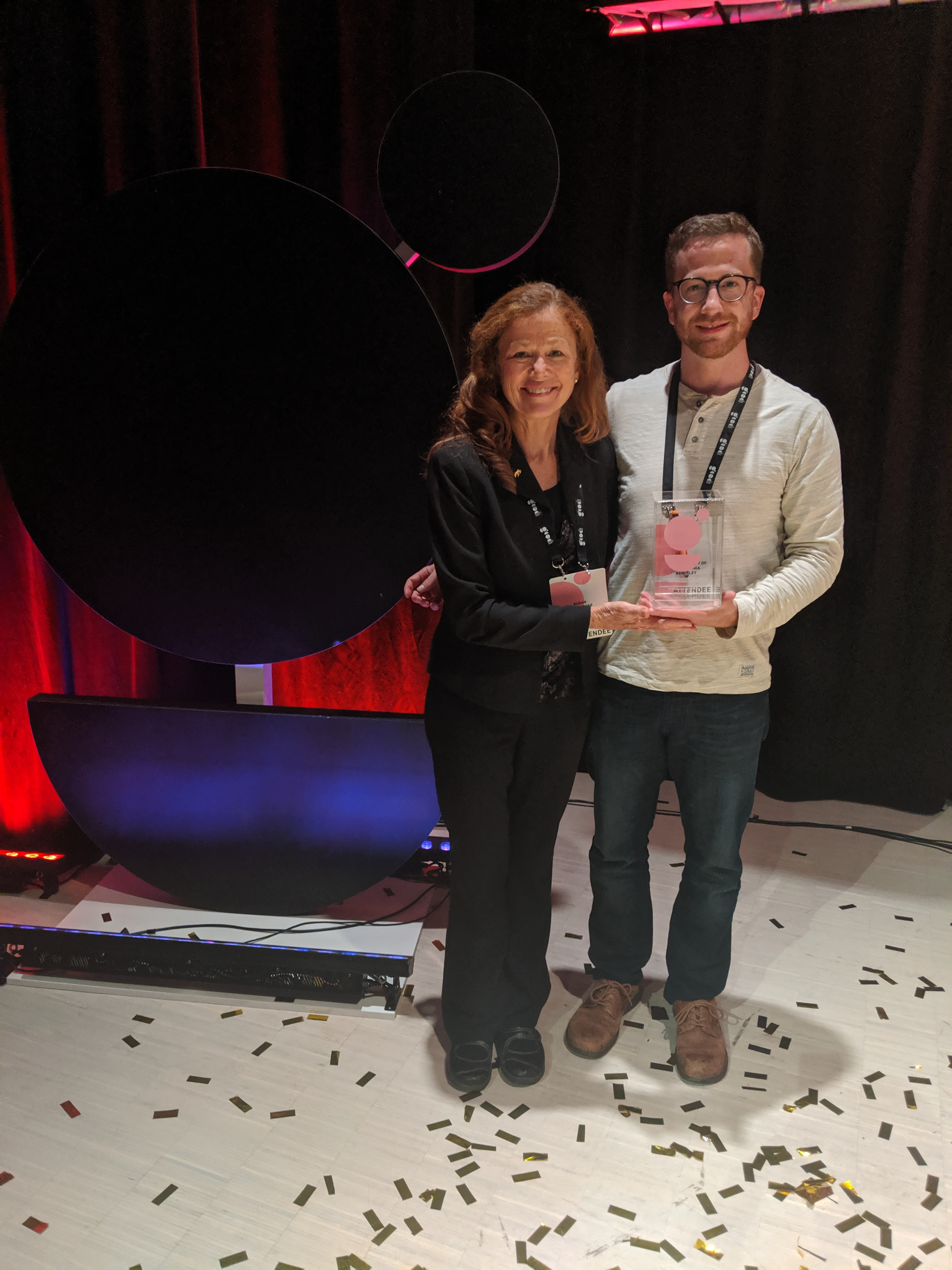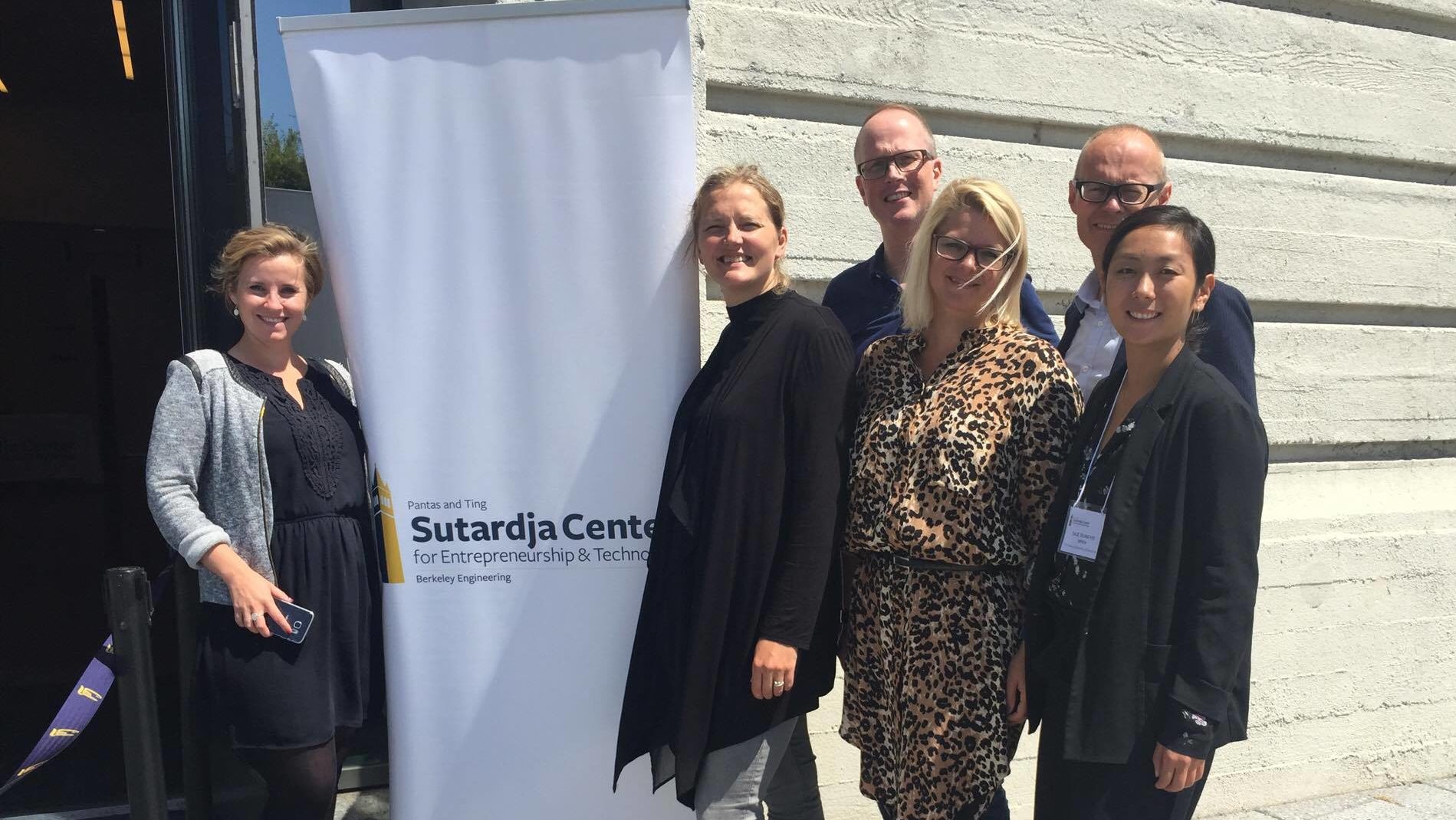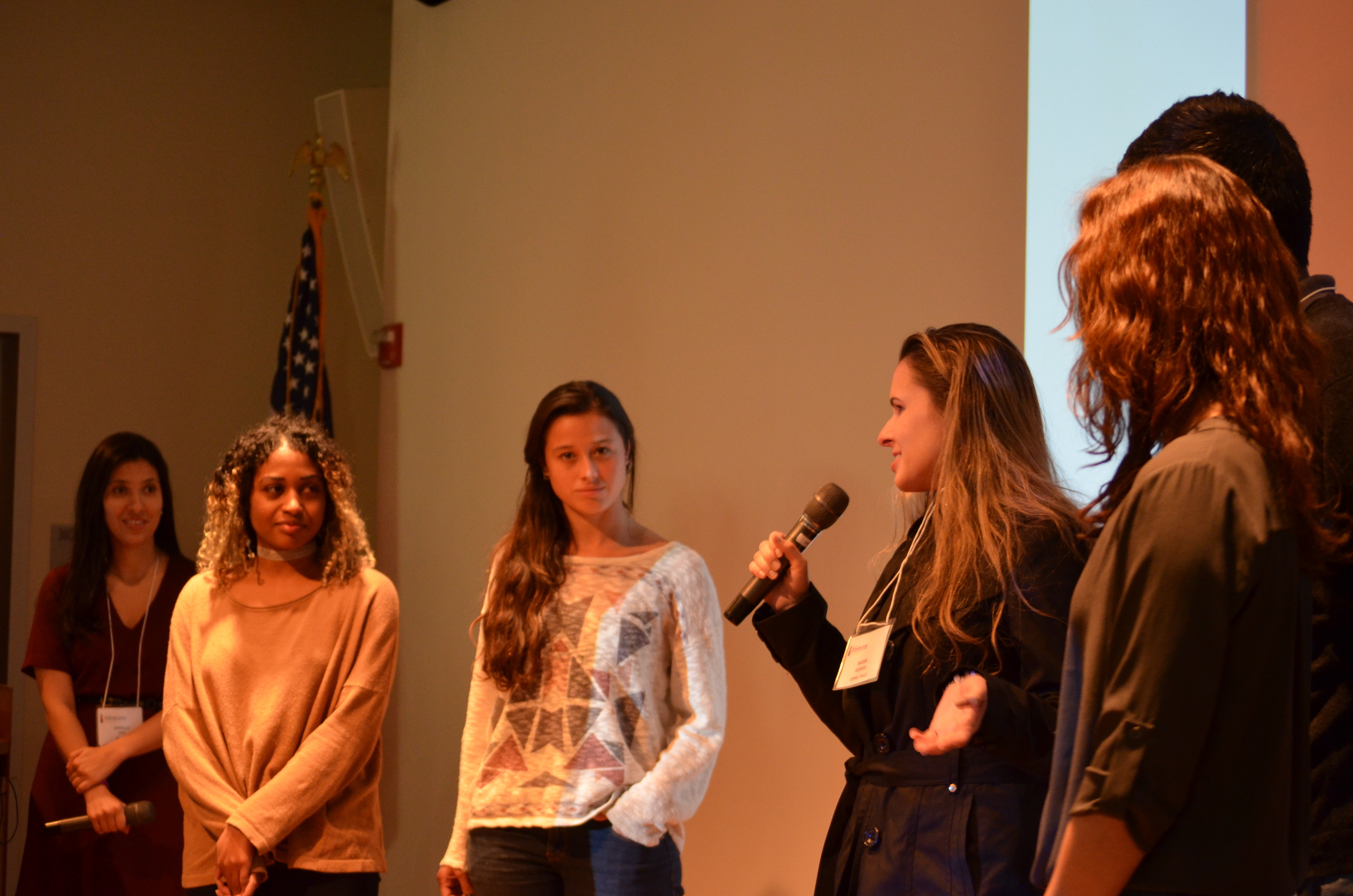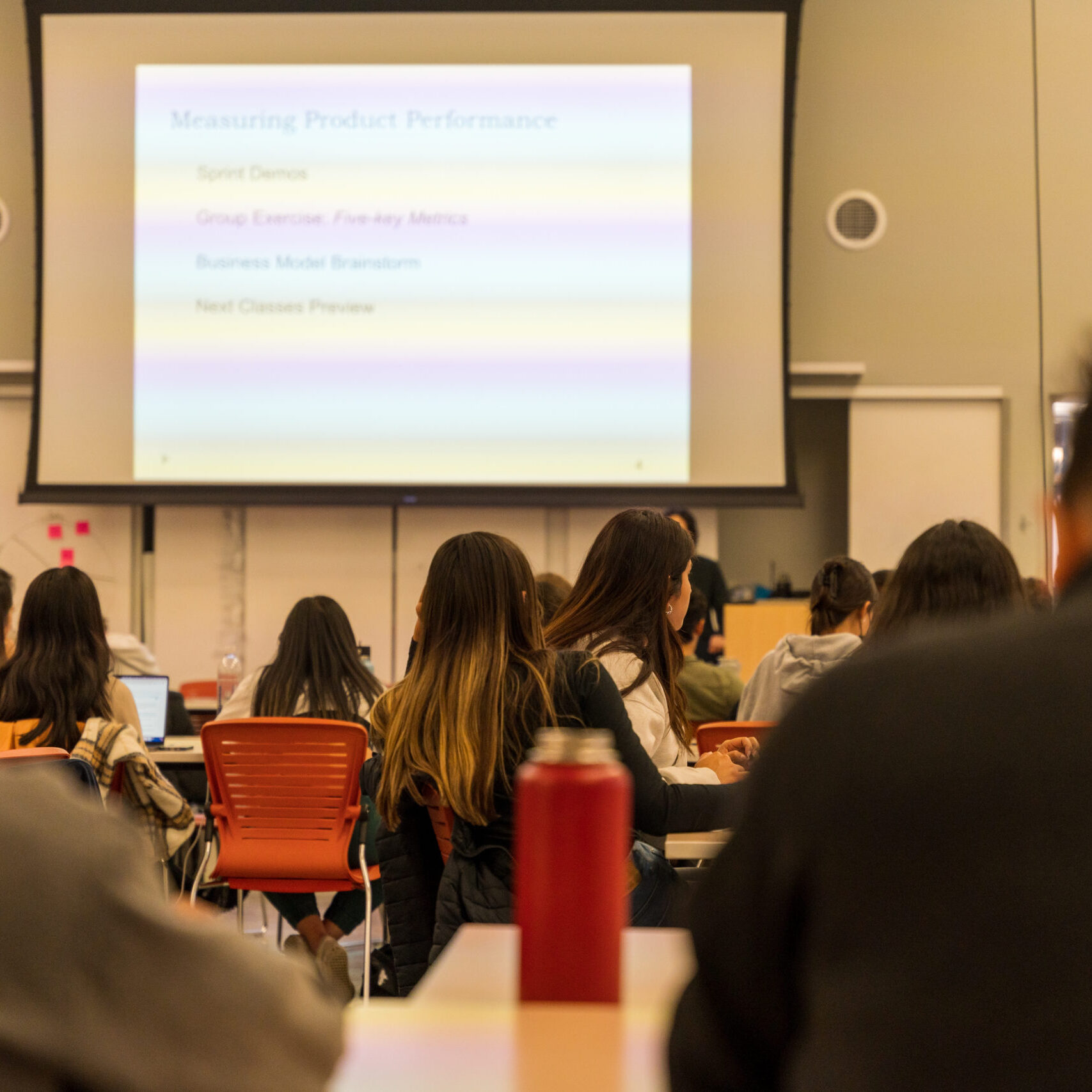
Innovative Methods and Mindsets
The Sutardja Center for Entrepreneurship & Technology is the premier institution on the UC Berkeley campus for the study and practice of technology-centric entrepreneurship and innovation. Our teaching principles include the award-winning Berkeley Method of Entrepreneurship developed by SCET and Innovation Engineering.
The Berkeley Method of Entrepreneurship
The award-winning Berkeley Method employs inductive learning methods to provide students with the critical thinking and observational skills necessary for them to succeed at the next step in their entrepreneurial journey.
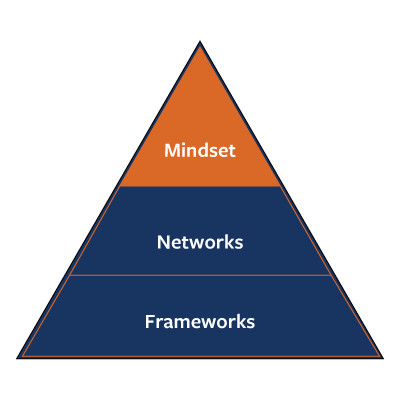
Mindset
SCET students receive exposure to cultural and social issues and learn about the psychology of entrepreneurship––trust, ethics, risk assessment, communication, and overcoming failure.
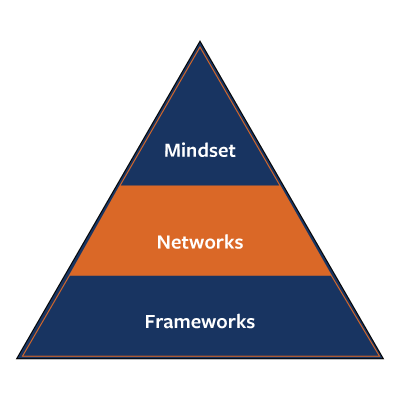
Networks
Students are given the opportunity to work in diverse networks and connect with mentors and experts. SCET provides a safe and supportive ecosystem within which students can grow their network.
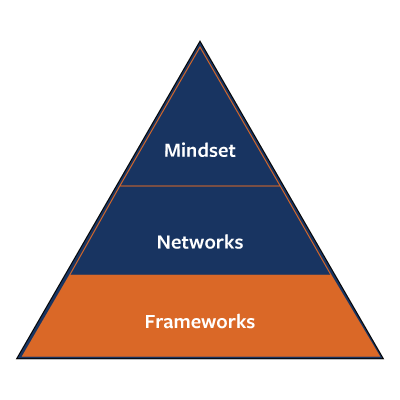
Frameworks
In our programs, students learn about opportunity recognition, raising funds, building business models, and other tools and processes associated with entrepreneurship.
The Berkeley Method of Entrepreneurship Bootcamp
Learn more about our teaching pedagogy and how it is implemented in one of our core programs, the Berkeley Method of Entrepreneurship Bootcamp.
The Berkeley Method in the News
SCET Wins Excellence in Entrepreneurship Teaching and Pedagogical Innovation Award
The Sutardja Center for Entrepreneurship & Technology (SCET) at the University of California, Berkeley has…
SCET’s new partnership brings Berkeley Method of Entrepreneurship to Denmark
SCET is supporting the Technical University of Denmark’s new Open Entrepreneurship Initiative to help bridge…
Berkeley Method of Entrepreneurship – A Quick Recap
This past week, the Sutardja Center for Entrepreneurship wrapped up its signature week-long bootcamp, capping…
Innovation Engineering
Innovation Engineering is a framework to create or transform anything aided by aligning human talent. This framework offers practical guidance useful in large firms, research labs, new ventures, or even innovative student projects. To learn more, see the Principals of Innovation Engineering.
Innovation is complex and requires a story narrative, an execution, and a human side––teams must let their work be guided by the correct mindsets, behavioral practices, and leadership.
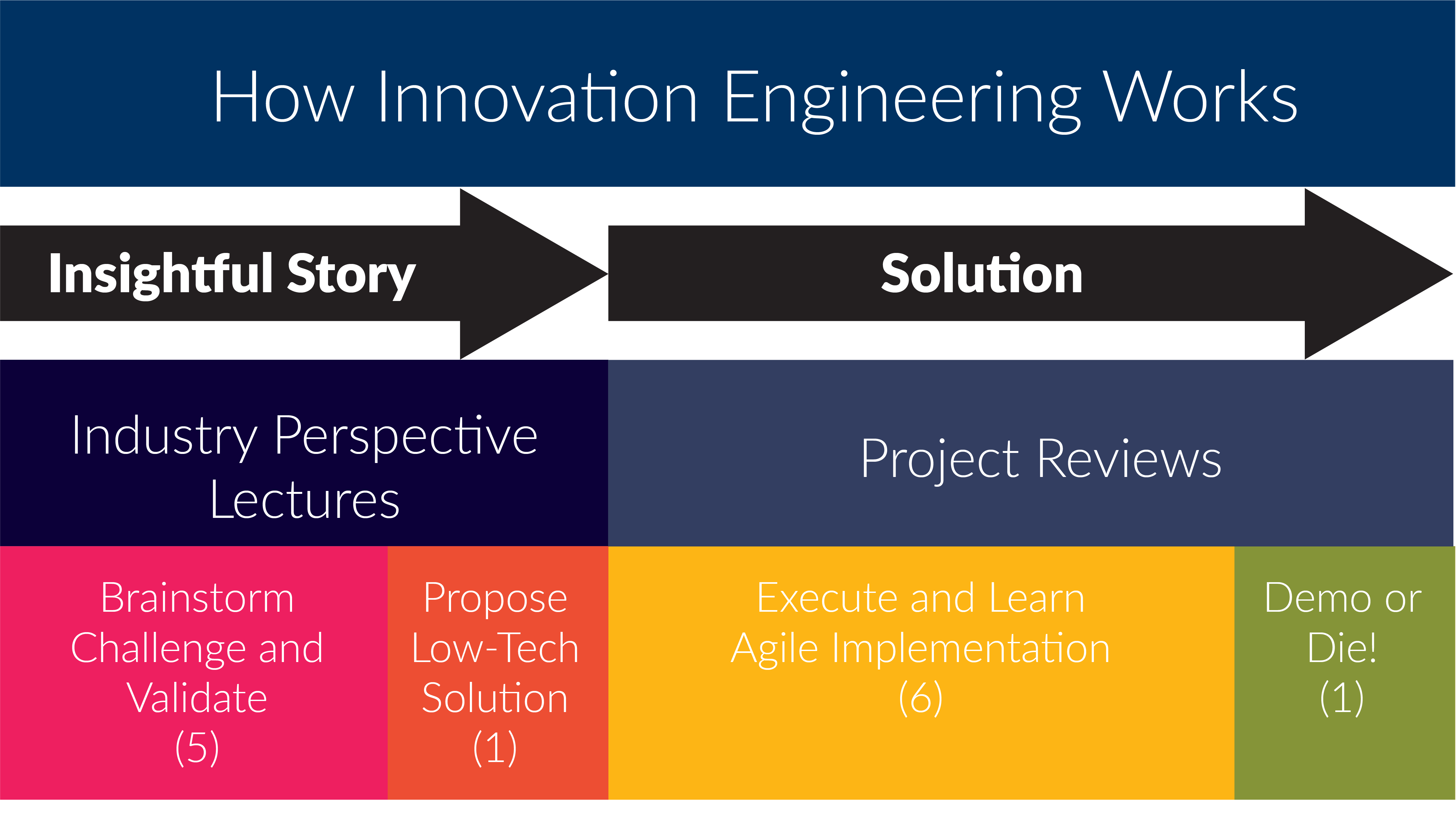
Mindsets that Matter
Pieter Abbeel
The Power of Listening
Professor Pieter Abbeel is the director of the Robot Learning Lab at the University of California, Berkeley, winner of the 2021 ACM Prize in Computing, co-director of the Berkeley Artificial Intelligence Research (BAIR) lab, co-founder, president, and chief scientist at Covariant and co-founder of Gradescope. In this interview, Professor Abbeel talks about the importance of listening to your customer, and interpreting what they need in order to be sure you are spending your time wisely and working in the right direction with new innovations.
Michelle Munson
How to Continuously Pivot
Entrepreneur Michelle Munsun talks about her journey to founding Aspera, which was acquired by IBM and then later Eluvio, a blockchain-based crypto content platform that enables creators and their communities to store, stream, mint, ticket, and trade any content experience on the blockchain. Michelle talks about her attitude in confronting the challenge for innovators of not knowing the difficulties that will be faced in the future, and how innovators can ground themselves in a core vision and then listen for feedback to know which direction to go.
Kurt Keutzer
Embrace Broad Thinking and Maximize Your Impact
University of California, Berkeley Professor Emeritus Kurt Keutzer talks about his journey from industry to UC Berkeley professor, to founding DeepScale, a company developing perceptual system technologies for automated vehicles. Professor Keutzer talks about his realization of the potential of running Artificial Intelligence and machine learning applications on graphics processing units (GPUs) and the vast potential uses for the technology. Inspired by the potential to save lives by reducing traffic accidents, Professor Keutzer founded DeepScale, and utilized his broad experience and background to stand out amongst other computer vision researchers to be able to work with customers and deliver technology solutions with DeepScale.
Kimberlie Le & Joshua Nixon
The Power of Doing
University of California, Berkeley alumni Kimberlie Le and Joshua Nixon share their journey to founding Prime Roots, an innovative plant-based foods startup focused on celebrating the culture of meat and producing koji-based meat alternatives that taste and look like the real thing. Kim and Josh talk about the challenge that startups face of creating something completely new. By definition startups venture into never-before-seen territory where there is no playbook or guide on how to move forward. Josh and Kim talk about the important mindsets and attitudes that innovators should have to be able to deal with this uncertainty and learn how to move forward.

